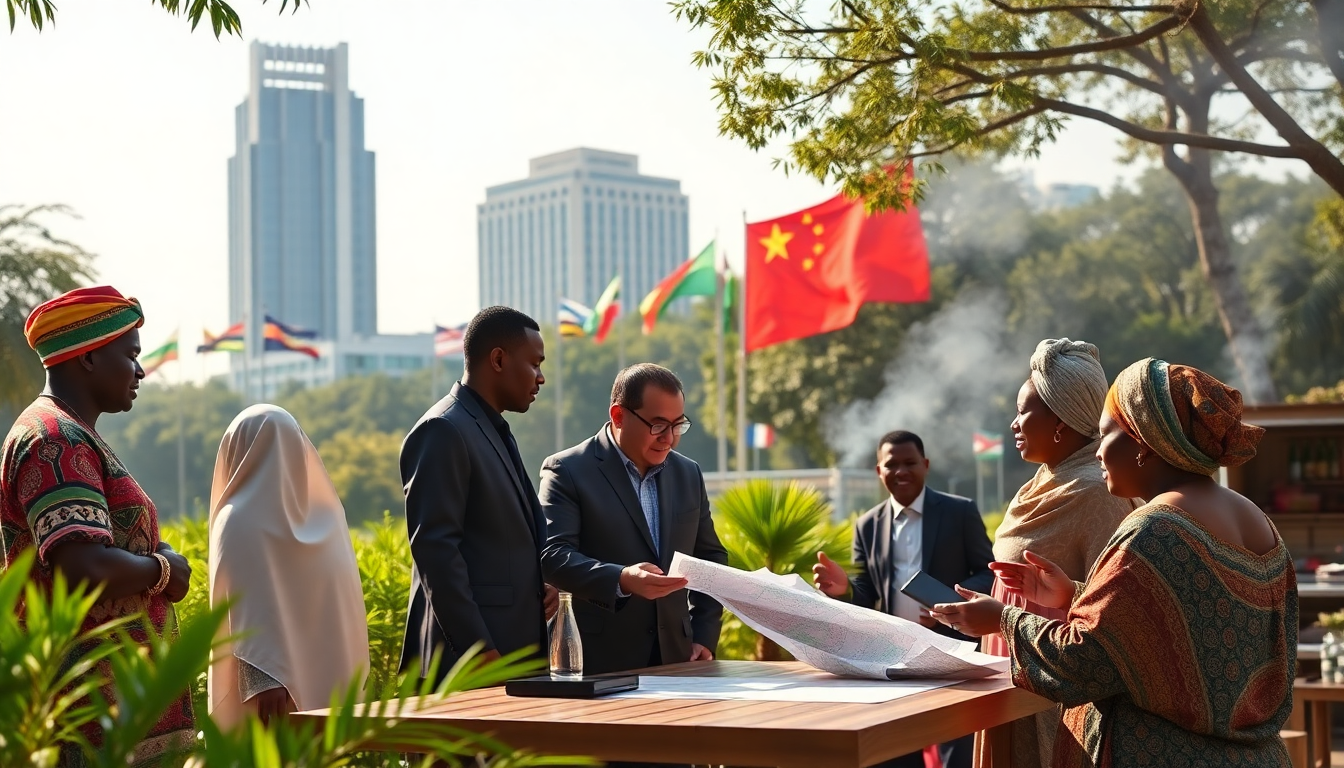The landscape of international relations is undergoing a dramatic transformation, especially as African nations increasingly align themselves with China amid waning ties with the United States. Have you noticed how the narrative has shifted? Analysts are raising eyebrows at a troubling trend: the US, once seen as a benevolent supporter, is now viewed by many as a source of harm, all while expecting unwavering loyalty in return. This pivotal moment has prompted countries to rethink their partnerships, particularly following China’s recent announcement to boost duty-free access for 53 African countries—yes, that’s right, only Eswatini is left out. This initiative stands in stark contrast to the US’s approach, which has leaned heavily on imposing trade tariffs and restrictive measures that jeopardize foreign aid.<\/p>
What Does China’s Duty-Free Access Really Mean?<\/h2>
In a bold strategic move, China has rolled out a duty-free access policy for a wide range of taxable products affecting 53 African nations. But this isn’t just about trade; it’s a significant victory for Beijing in its quest to deepen its influence across the continent. By offering more favorable trade terms, China is positioning itself as a dependable partner for African nations, many of whom are growing increasingly skeptical of the US’s tough-love tactics. Isn’t it interesting how perceptions shape alliances?<\/p>
Observers note that this new trade policy is likely to resonate well with African leaders and businesses. They may see it as a more constructive and beneficial arrangement compared to the punitive measures being imposed by the US. As Washington’s trade tariffs come into play, countries like Algeria, Libya, South Africa, and Tunisia may find themselves reassessing their alliances. Could this lead to a significant shift in the balance of influence within the region?<\/p>
The US Response: What’s at Stake?<\/h2>
Meanwhile, the US government’s strategy—characterized by threats to cut foreign aid and impose visa restrictions—has raised serious concerns among analysts. Cameron Hudson, a former US official, points out a troubling trend: Washington has assumed that its humanitarian efforts would create goodwill, allowing it to implement policies without considering the consequences. However, this approach seems increasingly outdated as African countries reconsider their foreign relationships. Are they starting to see the bigger picture?<\/p>
With the US’s plans for higher tariffs looming, many believe that African nations might increasingly look to China as a more appealing trading partner. This isn’t just a shift in economic alliances; it’s indicative of a broader geopolitical realignment. As countries like Cameroon, Ethiopia, and Nigeria face potential cuts in aid, the attraction of China’s cooperative trade policies becomes even more compelling. Who wouldn’t want a partner that offers a more collaborative approach?<\/p>
Looking Ahead: What’s Next for Africa and China?<\/h2>
The evolving relationship between Africa and China signals a significant geopolitical shift that could have lasting consequences. As the continent embraces this proactive engagement from China, the US may need to rethink its strategies if it hopes to maintain its influence. Traditional aid models are facing challenges, and a more trade-focused approach may be required to stay relevant. Does the US have what it takes to adapt?<\/p>
As we look to the future, the potential for increased investment and economic partnerships could redefine African economies. Investors and policymakers alike should focus on understanding these dynamics and seizing the opportunities that come with this shift. The narrative surrounding Africa as a land of potential is being rewritten. Those who can adapt to these changes might just find themselves leading the charge into a new era of growth and collaboration. Are you ready to explore what the future holds?<\/p>


